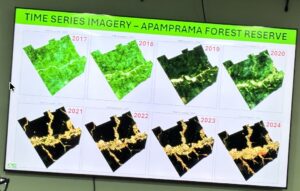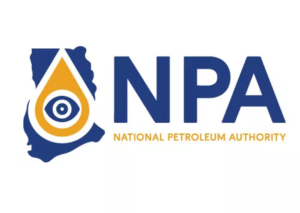
Photo: Irene Naa Torshie Addo-Lartey
In a major financial injection for local development, Irene Naa Torshie Addo-Lartey, the District Assemblies Common Fund (DACF) Administrator, approved an impressive GHS138 million release to Ghana’s constituencies on October 25, 2024. This substantial allocation targets President Akufo-Addo’s ambitious District Road Improvement Programme (DRIP), designed to rejuvenate road infrastructure across local communities.
With the funds, DACF has set strict guidelines to direct Metropolitan, Municipal, and District Chief Executives (MMDCEs) on the specified uses.
The DACF guidelines outline a precise breakdown of how each constituency’s GHS500,000 share will be used. According to the plan, GHS320,000 is earmarked for fuel expenses to sustain DRIP’s newly deployed fleet over the next four months, at GHS80,000 per month. Additionally, GHS140,000 will cover allowances for 14 DRIP staff, with GHS12,000 allocated to Local Drip Coordinators, critical to on-the-ground operations.
This structured distribution sets clear standards, ensuring that the funds are used with accountability. By keeping fuel tanks filled and staff supported, DACF aims to sustain an operational edge for the programme’s equipment fleet, which is expected to transform Ghana’s rural roadways.
The DACF’s funding follows a promise made by President Akufo-Addo in July when he introduced an impressive 2,240 units of construction machinery to address the country’s enduring road challenges. From bulldozers and graders to concrete mixers and water tankers, the DRIP fleet was mostly assembled domestically, a move that created jobs for over 2,000 locals with support from the 48 Engineers Regiment of the Ghana Armed Forces.
As part of the rollout, President Akufo-Addo forecasted employment for at least 10,000 Ghanaians, providing roles for mechanics, engineers, and artisans, with oversight from a robust committee. Each District Chief Executive chairs a team of experts, including representatives from the Ministries of Local Government and Roads and the 48 Engineers Regiment.
An official DACF letter, issued on October 25, leaves little ambiguity on fund usage, reminding MMDCEs to “take note and act accordingly.” The emphasis on adhering to the GHS500,000 allocation split signals the administration’s commitment to oversight, setting a structured pathway to maximise the funds’ impact.
This significant financial backing places local officials under the microscope as the DACF monitors each district’s implementation. With resources and machinery now in hand, the DRIP initiative will test if Ghana’s constituencies can translate funding into tangible road improvements. Will each constituency rise to meet DACF’s expectations, or will the vision for infrastructure renewal falter in the execution?
The DRIP project sets a high bar for transparency and effectiveness. With DACF’s watchful oversight, the impact of this major roadworks investment will be a point of national attention as Ghana drives toward infrastructure progress, kilometre by kilometre.






